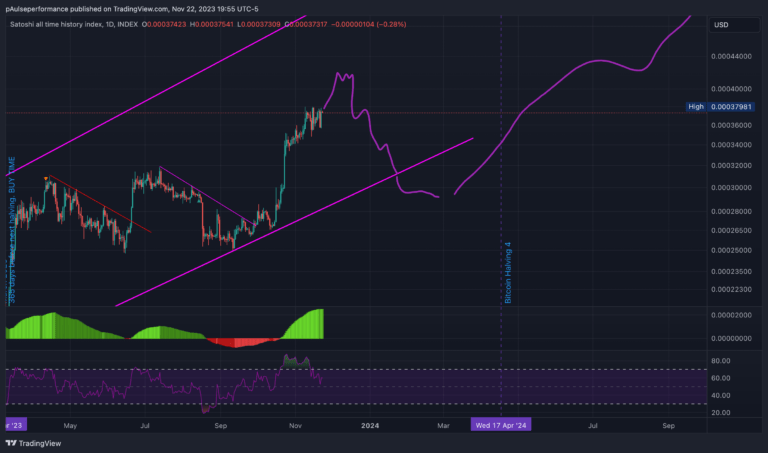The Quiz is free to take and does not require registration. Unless you want to access your personalized trader profile, save your quiz results, retake the quiz, and unlock valuable trading tips based on your profile, please either register or log in.
Trading Psychology Profile Assessment
Gain In-Depth Insight into Your Trading Psychology

Welcome to the Trading Psychology Profile Assessment.
Understanding your trading psychology is essential for successful trading. This assessment is designed to help you discover your unique trading mindset, uncover strengths, and identify areas for improvement.
By taking this assessment, you’ll gain valuable insights to enhance your decision-making skills in the financial markets.
Why You Should Take This Assessment:
- Unlock Your Potential: Understanding your trading psychology is a critical aspect of becoming a successful trader. This assessment will help you uncover your strengths and weaknesses, guiding you to make informed decisions in the world of finance.
- Improve Decision-Making: Knowing your psychological tendencies can empower you to make more rational and disciplined choices, leading to better trading performance.
- Risk Management: Discovering your trading psychology can highlight the importance of risk management in your trading journey, helping you protect your capital.
How Long Will It Take:
The Trading Psychology Profile Assessment consists of 15 questions and typically takes around 5-10 minutes to complete. It’s a quick and efficient way to gain insights into your trading psychology.
Outcome You Can Expect:
Upon completing this assessment, you will receive a personalized trading psychology profile, including valuable insights into your trading mindset. These insights will help you:
- Understand your emotional tendencies and areas for improvement.
- Enhance your decision-making skills in the financial markets.
- Focus on the strengths that can contribute to your trading success.
- Recognize the importance of risk management and discipline in trading.
Begin your journey to becoming a more informed and confident trader by taking the Trading Psychology Profile Assessment. It’s a short but impactful step that can lead to significant improvements in your trading performance.
Instructions:
- Select the response that best reflects your feelings, behaviors, and attitudes in trading.
- Answer all questions.
- Be honest! This is designed to help you where you’re at, not where your ego is at.
Quiz Summary
0 of 15 Questions completed
Questions:
Information
You have already completed the quiz before. Hence you can not start it again.
Quiz is loading…
You must sign in or sign up to start the quiz.
You must first complete the following:
Results
Results
Your time:
Time has elapsed
Categories
- Psychology 0%
-
Emotional Trader (The Impulsive Gazelle):

Overview:
You tend to be highly emotional in your trading, which can lead to impulsive decisions during losses and gains, much like a startled gazelle. It’s essential to work on emotional discipline and stick to a well-defined trading plan to manage your trading psychology effectively.
Key Points and Recommendations:
– Strategies for Self-Awareness: Start by recognizing your emotional triggers during trading. Document them to create an awareness of what leads to impulsive decisions.
– Emotional Discipline: Develop techniques to control your emotions. Practice deep breathing, mindfulness, or meditation to stay calm during trading. Consider setting predefined emotional boundaries for trades.
– Journaling: Maintain a trading journal to log your thoughts and feelings during trades. This can help you identify patterns and work on emotional discipline.
– Risk Management Reinforcement: Emphasize the importance of risk management and sticking to your risk control rules. Implement protective measures like stop-loss orders.
– Simulated Trading: Before risking real capital, engage in simulated trading to practice emotional discipline and improve decision-making.
Specific Strategies That Align With Your Trading Psychology:
– Momentum Trading: Emotional traders can benefit from momentum trading, capitalizing on short-term price movements driven by market sentiment. This strategy aligns with their impulsive nature but should be paired with tight risk management.
– Scalping: Scalping is a strategy that involves quick, frequent trades to capture small price movements. It suits emotional traders who prefer fast-paced trading but requires strict discipline and risk control.
– Breakout Trading: Emotional traders can explore breakout trading, focusing on assets with significant price breakouts. However, they must use robust risk management techniques to handle the volatility.
Please note that the results of the Trading Psychology Profile Assessment provide general assessments and not absolute classifications. Individual trading psychology can be more nuanced and may evolve over time with experience and self-awareness. The aim is to help traders recognize their tendencies and work on enhancing their strengths while addressing any weaknesses. Traders should carefully assess their risk tolerance, financial goals, and the time they can dedicate to trading before choosing a strategy that aligns with their trading psychology profile. They can also consider combining strategies to diversify their approach. Remember that trading is a journey, and self-awareness is a valuable tool to help traders continuously improve their skills and performance.
-
Cautious Trader (The Wise Owl):

Overview:
You approach trading with a sense of caution, much like a wise owl, trying to stick to your plan and manage risk. Building confidence in your strategy is crucial, and further education in risk management can help you improve.
Key Points and Recommendations:
– Building Confidence: Use your cautious nature to your advantage by meticulously evaluating and building trust in your trading strategy. Set specific performance metrics to assess your strategy’s success.
– Portfolio Diversification: Consider diversifying your investments to manage risk while maintaining a cautious approach. Allocate assets across various asset classes and sectors.
– Stress Management: Develop stress management techniques to handle pressure during trading. Identify your stressors and practice staying composed when they arise.
– Position Sizing: Work on optimizing your position sizing strategies to match your cautious trading style while maximizing potential returns.
– Risk Control Education: Enhance your understanding of advanced risk management techniques to protect your capital effectively.
Specific Strategies That Align With Your Trading Psychology:
– Swing Trading: Swing trading is well-suited for cautious traders. It involves holding positions for several days or weeks to benefit from intermediate price swings while adhering to a well-defined strategy.
– Dividend Investing: Cautious traders can explore dividend investing, focusing on stocks with consistent dividend payouts. This strategy aligns with their risk-averse approach and aims for steady income.
– Value Investing: Value investing, which involves identifying undervalued assets, matches the careful nature of cautious traders. They can seek long-term capital appreciation while managing risk.
– Dollar-Cost Averaging: Cautious traders can implement dollar-cost averaging by regularly investing a fixed amount in assets, reducing the impact of market volatility over time.
Please note that the results of the Trading Psychology Profile Assessment provide general assessments and not absolute classifications. Individual trading psychology can be more nuanced and may evolve over time with experience and self-awareness. The aim is to help traders recognize their tendencies and work on enhancing their strengths while addressing any weaknesses. Traders should carefully assess their risk tolerance, financial goals, and the time they can dedicate to trading before choosing a strategy that aligns with their trading psychology profile. They can also consider combining strategies to diversify their approach. Remember that trading is a journey, and self-awareness is a valuable tool to help traders continuously improve their skills and performance.
-
Composed Trader (The Steady Tortoise):

Overview:
You maintain composure in trading and view losses as part of the process, much like a steady tortoise. Staying disciplined in your approach is one of your strengths. Focus on refining your trading plan and continue building on your disciplined mindset.
Key Points and Recommendations:
– Trading Plan Refinement: Utilize your composed approach to fine-tune your trading plan. Continuously assess and adapt your strategy based on market conditions.
– Advanced Analysis Techniques: Dive into advanced technical and fundamental analysis methods to improve trade selection and market timing.
– Consistency Focus: Strive for consistency in your trading decisions. Stick to a well-structured routine and maintain discipline in executing your strategy.
– Continuous Learning: Dedicate time to staying updated with market trends, exploring new strategies, and expanding your trading knowledge.
– Mentorship or Coaching: Consider seeking mentorship or coaching to gain insights from experienced traders. They can offer valuable guidance to further develop your trading skills.
Specific Strategies That Align With Your Trading Psychology:
– Trend Following: Trend following strategies, where traders ride established trends, align with composed traders. They can maintain a calm and disciplined approach to capture long-term gains.
– Pairs Trading: Composed traders can explore pairs trading, where they simultaneously buy and sell related assets to profit from relative price movements while minimizing market exposure.
– Portfolio Rebalancing: A composed trader can focus on portfolio rebalancing, regularly adjusting their asset allocation to align with market conditions and long-term goals.
– Position Trading: Position trading, holding assets for extended periods based on fundamental analysis, suits composed traders who can maintain discipline during extended holding periods.
Please note that the results of the Trading Psychology Profile Assessment provide general assessments and not absolute classifications. Individual trading psychology can be more nuanced and may evolve over time with experience and self-awareness. The aim is to help traders recognize their tendencies and work on enhancing their strengths while addressing any weaknesses. Traders should carefully assess their risk tolerance, financial goals, and the time they can dedicate to trading before choosing a strategy that aligns with their trading psychology profile. They can also consider combining strategies to diversify their approach. Remember that trading is a journey, and self-awareness is a valuable tool to help traders continuously improve their skills and performance.
-
Confident Trader (The Fearless Lion):

Overview:
You display a high level of confidence in your trading decisions, even in high-pressure situations, similar to a fearless lion. Continue to develop your trading skills and consider more advanced strategies to capitalize on your confidence.
Key Points and Recommendations:
– Advanced Strategies Exploration: Leverage your confidence by exploring advanced trading strategies that align with your risk tolerance and potential returns, such as high-frequency trading or options trading.
– Risk Management Excellence: While confidence is an asset, never underestimate the importance of advanced risk management techniques to protect your capital.
– Innovation Embrace: Embrace innovative trading tools and technologies to enhance your trading efficiency and stay ahead of the curve.
– Continuous Learning Commitment: Stay committed to ongoing learning and skill enhancement to match the pace of your confidence. Stay up-to-date with emerging market trends and strategies.
– Advanced Tools and Analytics: Explore advanced trading platforms, tools, and analytics to support your confident trading style. Implement strategies that align with your risk appetite and potential returns.
Specific Strategies That Align With Your Trading Psychology:
– Day Trading: Day trading, which involves quick intraday trades, is ideal for confident traders. They can make rapid decisions and capitalize on short-term price movements.
– Options Trading: Confident traders can explore options trading, using advanced strategies like iron condors and butterfly spreads to manage risk and potentially increase returns.
– Cryptocurrency Trading: Cryptocurrency trading aligns with confident traders’ risk appetite, as it offers significant volatility and profit potential. However, they should implement robust risk management.
– High-Frequency Trading (HFT): High-frequency trading strategies, focusing on rapid execution and arbitrage opportunities, suit confident traders who can thrive in fast-paced markets.
Please note that the results of the Trading Psychology Profile Assessment provide general assessments and not absolute classifications. Individual trading psychology can be more nuanced and may evolve over time with experience and self-awareness. The aim is to help traders recognize their tendencies and work on enhancing their strengths while addressing any weaknesses. Traders should carefully assess their risk tolerance, financial goals, and the time they can dedicate to trading before choosing a strategy that aligns with their trading psychology profile. They can also consider combining strategies to diversify their approach. Remember that trading is a journey, and self-awareness is a valuable tool to help traders continuously improve their skills and performance.
- 1
- 2
- 3
- 4
- 5
- 6
- 7
- 8
- 9
- 10
- 11
- 12
- 13
- 14
- 15
- Current
- Review
- Answered
- Correct
- Incorrect
-
Question 1 of 15
1. Question
How do you typically respond to losing trades or market downturns?
-
Question 2 of 15
2. Question
When your trades are in profit, how do you handle them?
-
Question 3 of 15
3. Question
How do you deal with stress and pressure in trading?
-
Question 4 of 15
4. Question
How do you approach risk management?
-
Question 5 of 15
5. Question
What best describes your trading style?
-
Question 6 of 15
6. Question
How do you view trading losses?
-
Question 7 of 15
7. Question
What is your experience level in trading?
-
Question 8 of 15
8. Question
How do you react to market volatility?
-
Question 9 of 15
9. Question
What is your primary motivation for trading?
-
Question 10 of 15
10. Question
How do you respond to market news and events?
-
Question 11 of 15
11. Question
How do you evaluate your trading performance?
-
Question 12 of 15
12. Question
How do you handle losing streaks or drawdowns in your trading account?
-
Question 13 of 15
13. Question
How do you approach trade research and analysis?
-
Question 14 of 15
14. Question
How do you react to feedback or advice from other traders?
-
Question 15 of 15
15. Question
How do you approach continuous learning in trading?
If you are Logged in the Quiz results will be saved to your Trader profile they can also be viewed in My Account under “Trader Profile”.
Be Careful. You may only take this assessment twice.


